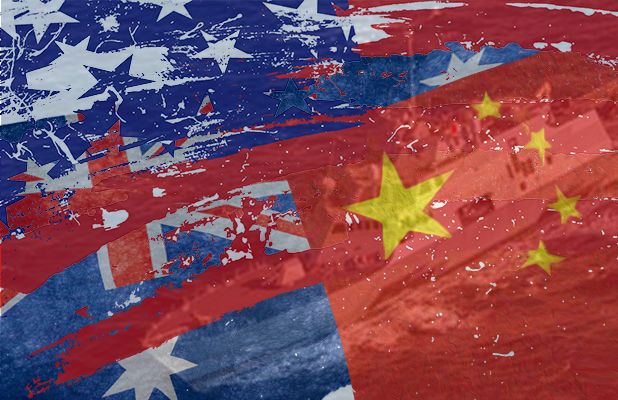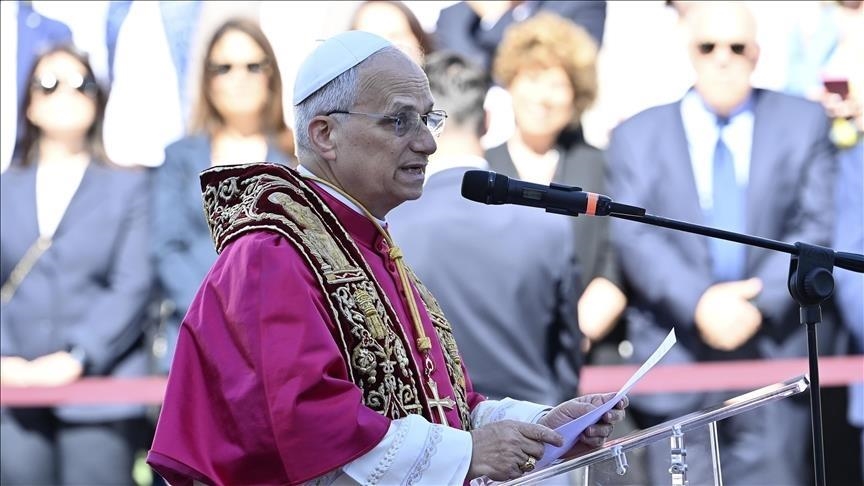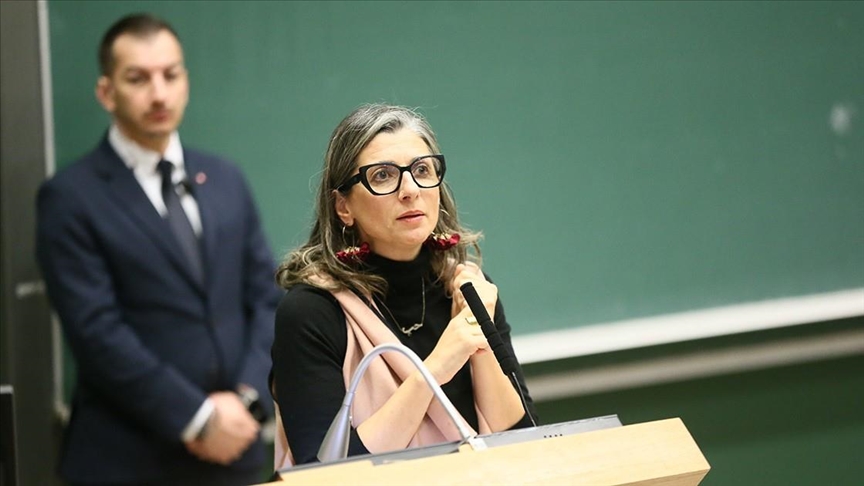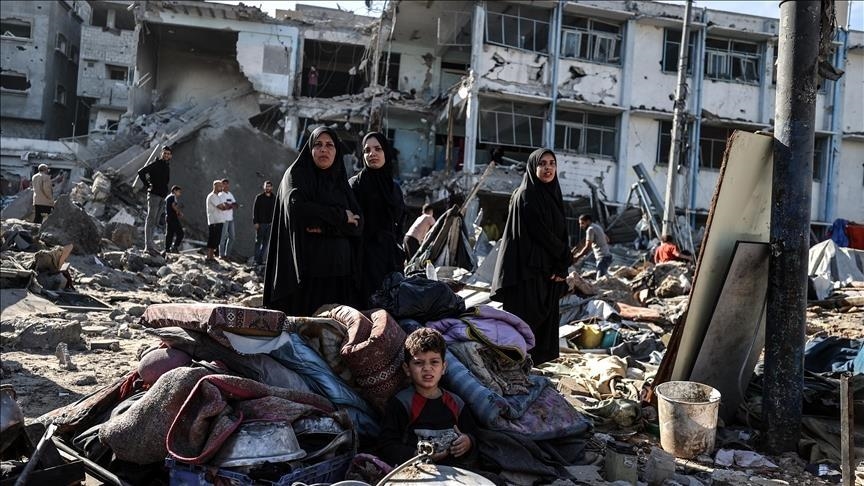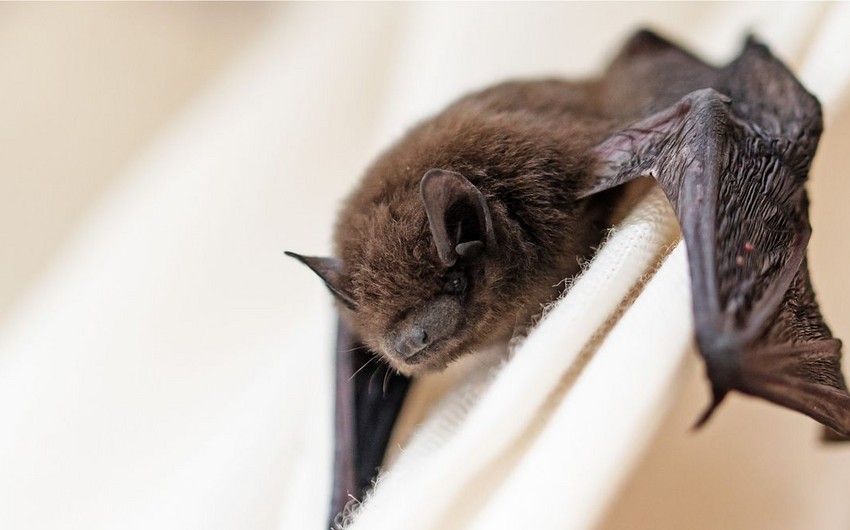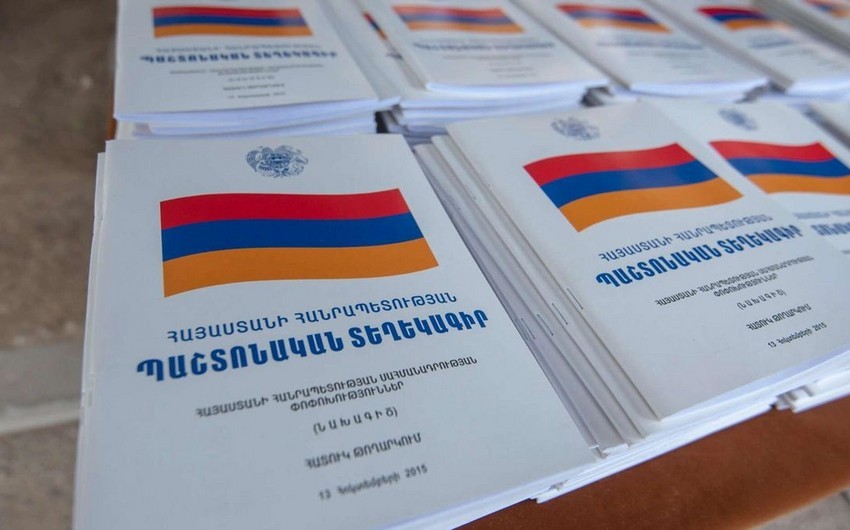Is the world moving closer to armed conflict on a global scale?
The turbulence is seen forebodingly in some quarters and the players involve, for example, Isis, Russia, a Saudi Arabia-led bloc against Qatar, Syria, the United States and North Korea. When combined with growing nationalism, the continued mass displacement of people in strife-torn areas and renewed tensions between the United States and North Korea, amid talk of a nuclear strike, the fears of a conflagration take a more serious complexion. While global factors impact on Australia to varying extents, one that has stood out for Australia is its balancing act in respect of relations with the United States and with China. What challenges does Australia face on the given its strong relations with these two global powers who do not always see eye to eye. Last year a senior US army official called on Australia to “to make a choice” between a stronger US alliance or closer ties with China and called on Canberra to take a tougher stance against China’s claims in the South China Sea. The Pentagon, however, denied this was the official US position. China is Australia’s largest trading partner, while Australia is a leading source of resources for China, according to the Lowy Institute. As reported by the New York Times “Australians are increasingly concerned about China’s growing influence in the country”. One observer, Associate Professor Joseph M Fernandez, a former Malaysian newspaper editor and now a journalism academic with a keen interest in media freedom, shared his personal insights on Australia’s foreign policy juggling act when it comes to managing relations with the US and with China.
“When faced with competing demands upon it by the United States and China, Australia can sometimes feel like meat in a sandwich,” Dr Fernandez, of Curtin University in Western Australia, told Eurasia Diary.
.jpg)
Joseph M Fernandez
Associate Professor of Curtin University in Western Australia
He said Australia has traditionally played the role of an ally to the West and in turn the US has projected itself to Australia as a stalwart ally. Australia was recently described by US Senator John McCain as “one of America’s oldest friends and staunchest allies.” Dr Mahathir Mohamad, former Prime Minister of Malaysia, however, once described Australia as “deputy sheriff” for the US, in the region. More recently, speaking to reporters in Singapore while attending a security summit, the Australian Prime Minister “absolutely rejected” such a suggestion.
In having a close relationship with the US, Australia can be said to be seeking protection for its western democratic ideals, freedoms, values and culture from a like-minded power. Australia’s close relations with the US can be traced to the First World War when the British government oversaw Australia’s foreign policy, to the US being a longstanding important trading partner, and to Australia and the US being parties to a security treaty – the ANZUS Treaty, which binds the countries to cooperate on military matters in the Pacific Ocean region, and even more widely.
One argument for the importance of the US to Australian and regional security was expressed in a 2012 White Paper which underscored Australia’s view of the importance of the US presence in the region. That White Paper stated:
“We consider that a strong and consistent United States presence in the region will be as important in providing future confidence in Asia’s rapidly changing strategic environment as it has been in the past. We will continue to support US engagement in the region and its rebalancing to the Asia–Pacific, including through deepening our defence engagement with the US and regional partners.”
China is Australia’s largest trading partner, while Australia is a leading source of resources for China. China’s stake in Australia can also be seen in the high level of Chinese investment in Australia – Australia is the second biggest recipient of Chinese investment globally behind the US, with US$90 billion in investment since 2007. However, there is increasing concern in Australia about the growing Chinese influence resulting, for example, from the high ownership of property by Chinese interests and concerns about foreign ownership laws being sidestepped by people seeking to get their money out of China. There are also concerns that a majority of Australians fear that rich Chinese investors are buying up housing in Australia. China’s poor human rights and media freedom record is also a concern although the Australian government treads cautiously in this regard because of what China perceives as Australia’s problems in its own backyard in this regard.
.jpg)
The South China Sea is one of the most militarized regions in the world
Source: Center for Strategic and International Studies
“The geopolitical importance of the South China Sea to Australia cannot be understated. Australia’s defense, security and economic fortunes are heavily dependent on what happens in the region,” Dr Fernandez said.
“While most countries in the region can be seen as not having strong hegemonic intentions, China’s growing influence in the region cannot be ignored in Australia.
“The rich oil and gas resources in the region, for example, provide opportunities for those who can exert control.”
Dr. Fernandez said the longstanding territorial disputes involving the Spratly Islands, in the South China Sea, continues to be a sore point among countries in the region. The 750 spits of lands that make up the Spratly Islands is significant because of their strategic location in the middle of several major trade routes, they are rich in fishing. They also possibly contain vast natural resources. China has been building artificial islands with a capacity for military assets in the South China Sea raising tensions and threatening regional stability.
.jpg)
Source: International Maritime Organization
Dr Fernandez said the significant trade and economic relations Australia has with China necessarily means that Australia must be careful in the face of conflicting expectations from these two superpowers.
While for the most part the US has been seen as the preeminent world power, some hold the view that China will ultimately rule the world, Dr Fernandez said. In such a scenario, China could not only displace the US as the major superpower but could also turn notions of modernization on its head.
Dr Fernandez said the interests that can sometimes compete against each other cover the economy, defence and security matters, in particular. He said it would be too simplistic to expect that in all such situations of conflicting demands it would be merely a question of choosing to side with one foreign power or the other.
He said all countries would tend to look after their own interests first and would naturally give diplomatic resolutions preference in the event of a conflict between respective national interests.
“The question for Australia, as with any country, is how it will balance competing interests and expectations and avoid being drawn into conflicts that harm Australia’s own interests,” Dr Fernandez said.
Australia’s relations with the US were once characterized as going “all the way”.
.jpg)
Dr Fernandez underlined, however, it can no longer be assumed that the public in Australia will strongly stand behind the country’s leaders who commit Australia in a similar way.
In the US’s seven wars of the past century – WWI, WWII, Korean War, Vietnam War, Gulf War, Afghanistan War and Iraq War – only Australia fought in all seven wars and every one of them was fought far from Australia’s shores.
Dr Fernandez said more recently questions were being asked as to whether the Australian Prime Minister Malcolm Turnbull fed the idea of Australia being a “US lapdog” in a telephone conversation he had with Mr Trump to discuss a deal on refugees. Well before Mr Donald Trump became the US President it was observed that it was “widely understood that an unambiguous alignment with the US, while offering protection, also entails risks, and possibly entanglements.”
Following Mr Trump’s ascension as President, it has been asked whether in the Trump era, as Asia-Pacific alliances shift, “is it time for Australia to re-evaluate its position in the region?”
Dr Fernandez said that with the ascent of Mr. Donald Trump as President of the US some of the assumptions underpinning Australia’s relations with the US based on earlier US presidencies might need to be reviewed.
“Mr. Trump has brought to his office a high degree of volatility and uncertainty on many fronts. And Australia has had direct experience of the unpredictability of the Trump White House,” Dr Fernandez said.
“For example, one of the first things Mr. Trump did was to seriously question the refugee deal the US under Mr Barrack Obama entered into with Australia.”
Mr. Trump described the deal as “a stupid deal” and a “ridiculous” one, and misled the public about whether he had a pleasant or terrible phone chat with the Australian Prime Minister. While the transcript of the phone call shows that Mr. Trump referred to it as “my most unpleasant call”; at the time he attacked the media for reporting the call as being unpleasant. Mr. Trump had tweeted at the time that the phone conversation was in fact “very civil” and that the “fake news media lied about it”.
For the most part, Australia has not openly demonstrated any animosity towards Mr. Trump but it can be argued he is not held in very high esteem. A few months ago the Australian Prime Minister, in a speech he thought was protected by confidentiality rules, parodied Mr Trump. The speech was leaked to the media and some saw this as potentially damaging to his relations with the US President although there has been no discernible fallout.
Australia’s leaders have generally avoided rocking the boat in its foreign relations. This approach is likely to be firmly adhered to especially amid the current rising tensions between the US and North Korea, in the context of which no real challenge arises in balancing the relations with China given that China too agreed to the recent strict UN sanctions on the rogue state.
Farid Hasanov

